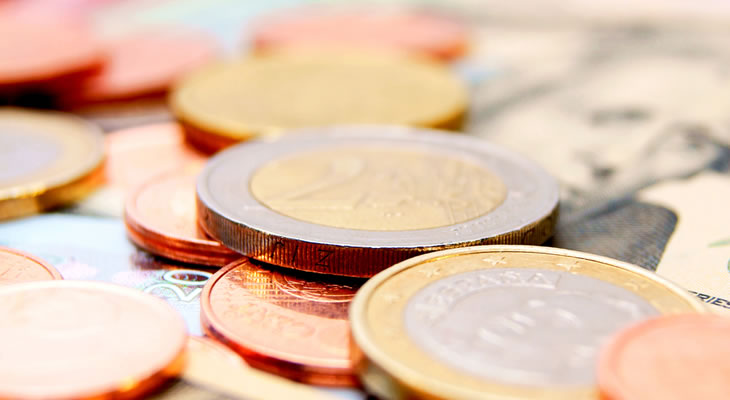Near-Term Euro to Pound Rally Possible on Higher German GDP
The Euro to Pound (EUR/GBP) exchange rate could rise sharply on 11th January, when Germany’s GDP growth figure for 2017 will be announced.
Current expectations are for a significant rise on the previous reading, from 1.9% to 2.5%.
Such a result could greatly increase confidence in the Euro and improve the EUR/GBP exchange rate.
Germany has the largest economy out of all the Eurozone countries, so such a positive result could greatly increase confidence in the single currency bloc going into 2018.
Euro to Pound Exchange Rate Forecast: Resolution of Coalition Talks could Boost EUR/GBP
Less specifically, the Euro could also appreciate against the Pound based on political news in the coming days.
This focuses on German Chancellor Angela Merkel’s coalition talks, between her CDU/CSU union and the second-largest party, the SPD.
With the best will in the world, however, there are fundamental differences between the three parties which may prove difficult to overcome.
Janosch Delcker, Politico Correspondent, has identified a number of areas where the parties could clash, particularly over immigration.
Considering the chance of compromise, Delcker says;
‘[There is] some. When the three parties write draft agreements on migration, they could come up with vague formulations that would allow each party to present the result as a success to their supporters’.
Another problem is military spending; Delcker is even more concerned about room for compromise in this area, saying;
‘[There is] little. While some officials suggest a compromise by broadening the definition of military spending, others are skeptical that the parties will find common ground’.
If the CDU/CSU and SPD parties all seem to be making early headway in talks this week, the Euro to Pound exchange rate could rise sharply.
UK Cabinet Reshuffle Lowers Confidence in Theresa May and Lowers GBP/EUR Rate
The Pound to Euro exchange rate has been tight in recent days, as traders and pundits analyse the impacts of Prime Minister Theresa May’s recent cabinet reshuffle.
Due to a perceived lack of support following a narrowly-won snap general election, May hasn’t made a large number of changes to the big positions in her administration.
This left onlookers disappointed, with the media focusing on new titles added to existing roles and Chris Grayling mistakenly being named as Conservative Party Chairman.
Lower confidence in May’s abilities translates to lower confidence in the UK as a whole, whether it’s the economy or Brexit negotiations.
‘No Deal Brexit’ Remains Clear Concern for Economists and Pound (GBP) Traders
An extension of the recent reshuffle has been the concern that there could be a position made for a ‘no deal’ minister.
Such a position would see the holder calculate how the UK could leave the EU without securing a lasting deal, something denounced as economically dangerous by analysts.
Examining the risks and dangers of a ‘no deal’ conclusion to Brexit have been two analysts at the Rand Corporation.
Charles Ries, International Vice President, and Marco Hafner, Senior Economist, have both warned about the damage ‘no deal’ could cause by stating;
‘The problem is that no deal being better than a bad deal simply does not apply to Brexit.
For the UK, and to a certain extent the EU, it does not get any worse economically than a ‘no deal’ option after Brexit negotiations’.
If the likelihood of UK negotiators aiming for a ‘no deal’ increases in the coming weeks, the Pound could drop sharply over fears of economic turmoil for the country.


Comments are closed.